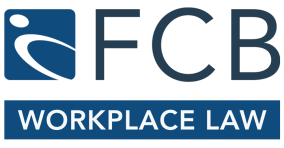Increases to employer superannuation contribution: what businesses need to know
June 25, 2021All employers have an obligation under the Superannuation Guarantee (Administration) Act 1992 to make superannuation contributions to employees at least every quarter.
Currently, the minimum superannuation contribution employers are required to make in respect of each employee is nine and a half per cent of their ordinary time earnings (subject to eligibility requirements).
However, from 1 July 2021, the minimum superannuation contribution will increase to 10 per cent and will continue to increase yearly thereafter by half a per cent until it reaches 12 per cent in July 2025 as noted in the table below:
| Period | Superannuation Guarantee (%) |
| 1 July 2020 – 30 June 2021 | 9.5% |
| 1 July 2021 – 30 June 2022 | 10% |
| 1 July 2022 – 30 June 2023 | 10.5% |
| 1 July 2023 – 30 June 2024 | 11% |
| 1 July 2024 – 30 June 2025 | 11.5% |
| 1 July 2025 – 30 June 2026 | 12% |
What does this mean for employers?
In order to prepare your business for the increase to the minimum superannuation guarantee payments, we advise that your business do the following:
- Adjust your payroll system
You’ll need to make sure that your payroll system has been adjusted to ensure the correct minimum superannuation contribution is paid to all employees. Where payment for wages is made in the July 2021 quarter, albeit for work performed during a previous period, the 10 per cent superannuation guarantee contribution will apply.
If you fail to pay the correct rate of the superannuation guarantee into your employees’ super accounts, then you may be liable to pay the superannuation guarantee charge (SGC). The SGC is an ATO penalty for late or inaccurate superannuation payments which includes all superannuation guarantee amounts owing to employees, plus interest and an administration fee.
- Review employee contracts of employment
It’s wise to review your employees’ contracts of employment to determine whether you are required to make the additional increase payment, or whether their contract of employment adequately offsets this.
For example, if a contract of employment states that an employee is paid on a total remuneration basis which includes statutory superannuation under any legislation at any point in time. In this case, then it may be possible for an employer to reduce an employee’s base rate of pay to effectively offset the increase in superannuation such that an employee’s total remuneration remains unchanged.
Naturally, an employer must carefully ensure that the wording of the employment contract enables such an approach to be taken, and an employee’s resulting reduced base rate of pay continues to result in the employee being paid in excess of minimum entitlements.
Even if an employer is able to take this approach, it remains open for an employer to pass on the superannuation increase while maintaining an employee’s base rate of pay.
If the business’s template contracts of employment are not drafted on this basis, in light of future increases in superannuation up to 12 per cent, consideration should be given as to whether the business wishes to update its employment terms for current and/or future employees.
However, if an employee is paid a minimum award salary or the contract of employment is not drafted on a total remuneration basis, the business will be obligated to increase its minimum superannuation contribution to 10 per cent.
Businesses are strongly encouraged to actively engage with and communicate with employees, so they are aware and understand the approach in which the business intends to take.
What else is set to change?
Default superannuation system:
From 1 November 2021, an employee’s superannuation fund will be “stappled” to them. As an employer, you are still required to provide an employee with a superannuation choice form upon commencement of employment, however, if the employee does not nominate their preferred fund, no longer can you automatically make superannuation contribution payments to the businesses default fund.
You will be required to make superannuation contribution payments to an employee’s existing superannuation fund. If an employee does not have an existing superannuation fund and does not nominate their preferred fund, then you are able to make payments directly into the business’s default fund.
If you have any questions about changes to the superannuation guarantee, please do not hesitate to contact the team at FCB Group.

























